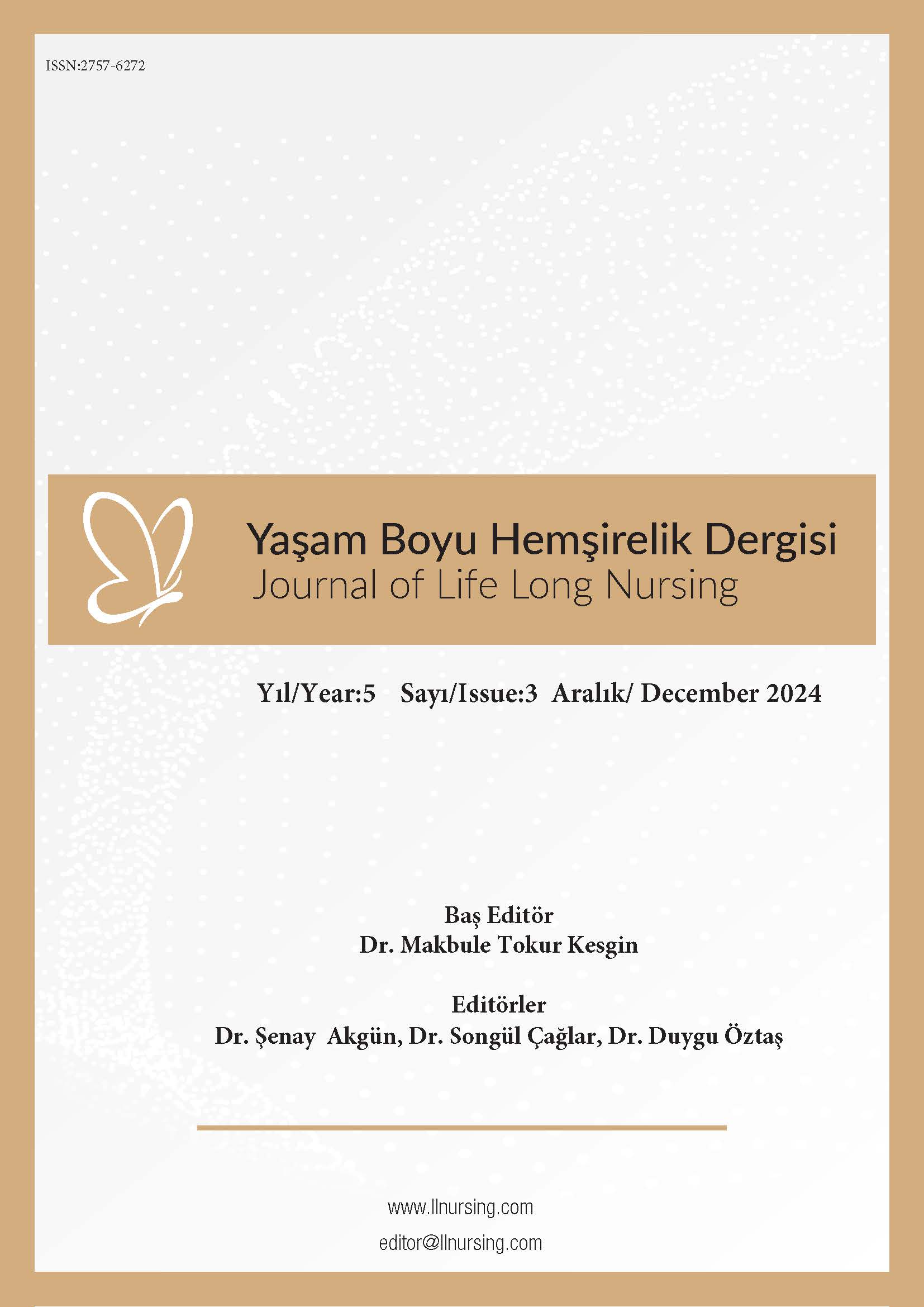Otizm Spektrum Bozukluğu Olan Çocukların Yemek Zamanı Davranışları ve Ebeveyn Tükenmişliği: Kesitsel ve İlişki Arayıcı Çalışma
Author :
Abstract
Özet (Abstract)
Amaç: Otistik bozukluğu olan çocukların yemek zamanı davranışlarının ebeveyn tükenmişliği üzerine etkisinin incelenmesidir.
Yöntem: Kesitsel ve ilişki arayıcı tipte planlanan çalışmanın evrenini Türkiye’de bir ilin 2 merkez ilçesinde, özel eğitim okullarında ve diğer eğitim kurumları içinde bulunan özel eğitim alt sınıflarında eğitim alan otizm spektrum bozukluğu tanısına sahip çocuğu olan ebeveynler oluşturmaktadır. Örneklem grubunu ise dahil edilme kriterlerine uyan 151 çocuğun ebeveyni oluşturmuştur. Araştırma verileri Nisan 2021- Aralık 2022 tarihleri arasında, Ebeveynleri Tanımlayıcı Bilgi Formu, Otizm Öğün Davranış Kısa Ölçeği (BAMBI) ve Ebeveyn Tükenmişliği Değerlendirmesi (PBA) aracılığıyla yüz yüze toplanmıştır. Statistical Package for the Social Sciences (SPSS) 24.0 paket programı ile gerçekleştirilen istatistiksel analizlerde anlamlılık düzeyi p<0,05 olarak kabul edilmiştir.
Bulgular: Ailedeki çocuk sayısı, yaşı, cinsiyeti, anne sütü ile beslenme problemleri çocuğun yemek zamanı beslenme davranışlarını etkilemektedir. Çalışmada otistik bozukluğa sahip çocuğu olan babaların annelere göre daha fazla tükenmişlik yaşadığı, çalışmayan babaların çalışanlara göre daha tükenmiş oldukları ve ağır derecede otistik bozukluğu olan çocuğa sahip ebeveynlerin daha tükenmiş oldukları belirlenmiştir.
Sonuç: Otistik bozukluğu olan çocukların problemli yemek zamanı davranışı arttıkça ebeveyn tükenmişliğinin arttığı saptanmıştır.
Keywords
Abstract
Objective: The aim of this study was to investigate the effect of mealtime behavior in children with autism spectrum disorder on parental burnout.
Methods: The population of the study, in which a cross-sectional and relationship exploring design was used, consisted of parents of children with autism spectrum disorder studying in special education schools and special education subclasses in other educational institutions in two central districts of a province in Turkey. Parents of 151 children with autism who met the inclusion criteria were included in the sample. Research data were collected face to face using a Parental Descriptive Information Form, the Brief Autism Mealtime Behavior Inventory (BAMBI), and the Parental Burnout Assessment (PBA) scale between April 2021 and December 2022. Study data were analyzed on the SPSS 24.0 software package. The level of significance was accepted as p<0.05.
Results: The number of children in the family, age, gender and breastfeeding problems affected the child's mealtime behaviours. In the study, it was found that fathers with children with autism spectrum disorder experienced more burnout than mothers, and non-working fathers experienced more burnout than working fathers. In addition, parents with children with severe autism spectrum disorder experienced more burnout.
Conclusion: It was determined that as the problematic mealtime behavior of children with autism spectrum disorder increased, parental burnout also increased.





